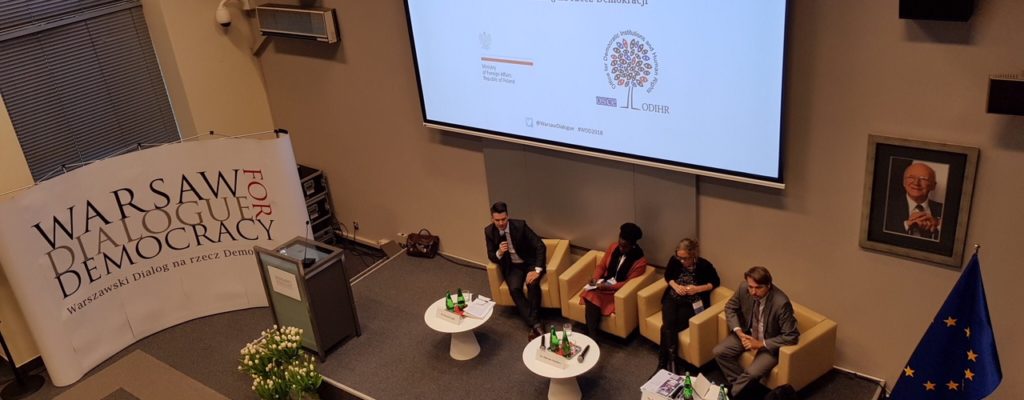
Election-Watch.EU (wahlbeobachtung.org) presents at Warsaw Dialogue on Democracy
(c) picture WDD
The Warsaw Dialogue on Democracy (WDD) is an annual international conference, organized by the Polish MFA, dedicated to many facets of current democratization processes. This year’s Warsaw Dialogue on Democracy on 22/23 in November 2018 was held under the title Democracy 2.0 and the main scope of the discussion was on the ways modern technologies and social media influence democracies all around the world.
The discussion panel “free elections in modern times” provided an opportunity to explore challenges and best practices in promoting and implementing inclusive elections, paying particular attention to how new technologies can facilitate or hinder inclusive participation. Armin Rabitsch from Election-Watch.EU (wahlbeobachtung.org) discussed the connection between trust in elections, electoral participation and technology. Dr. Richard Lappin of the Office for Democratic Institutions and Human Rights (ODIHR) of the OSCE chaired and opened the discussion. Olufunto Akinduro from the Electoral Institute for Sustainable Democracy in Africa (EISA) and Giovanna Maiola from the EU Election Observation and Democracy Support (EODS) focused in their presentation on concrete examples of inclusion in elections and appealed to caution when using technology in elections.
Democratic elections are recognized globally as the cornerstone of democracy and regarded as one of the key elements of long-term security and stability. A range of international obligations and standards for democratic elections, including OSCE commitments, serve to safeguard the principle that the will of the people, freely expressed in periodic and genuine elections, constitutes the basis for the authority of government.
To give effect to this principle, international obligations require countries to ensure that suffrage rights be as inclusive as possible. The right to vote and to be elected should extend to all citizens without discrimination or unreasonable restriction. This obligation of universality demands that although every country can determine who is eligible to participate in an electoral process, conditions must be non-discriminatory. To give effect to this right, many countries have introduced special measures to promote the participation of women, minorities and persons with disabilities, as well as to remove restrictions that may impact other marginalized groups due to residency requirements, prior conviction, language abilities or educational qualifications.
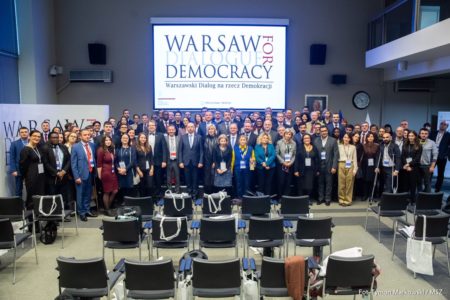
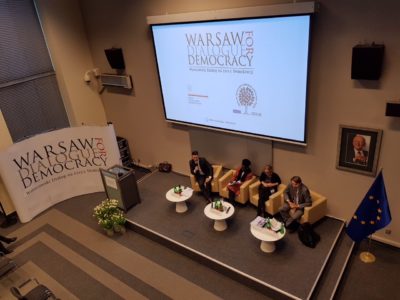
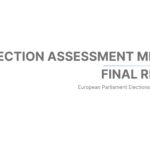 Election Assessment Mission Report with good practice examples published
Election Assessment Mission Report with good practice examples published
 Supporting Electoral Reform in Liberia
Supporting Electoral Reform in Liberia
 Presenting Electoral Reform Paper at the Electoral Integrity Project Conference
Presenting Electoral Reform Paper at the Electoral Integrity Project Conference
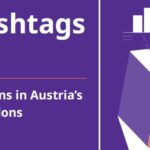 Social media monitoring of Austria’s general election campaign
Social media monitoring of Austria’s general election campaign
 How best to assess hybrid threats in elections?
How best to assess hybrid threats in elections?